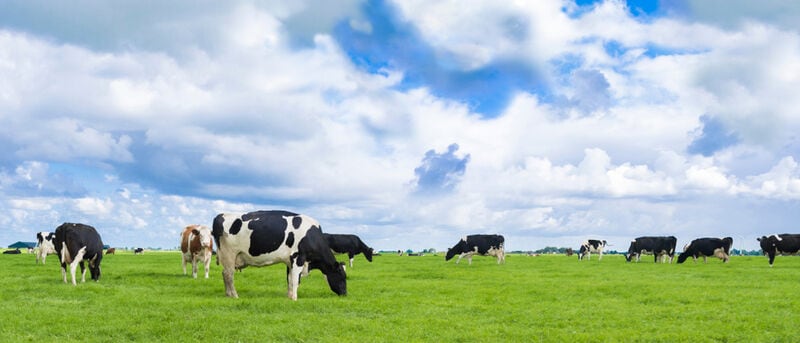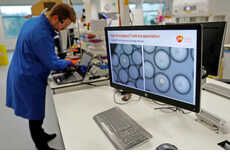Ben-Gurion University of the Negev are Tweaking the Microbiome of Cows
References: nature & sustainability-times
Modifying the microbiome of cows is believed to be a solution for inhibiting methane production in cattle. A team of scientists at Ben-Gurion University of the Negev in Israel have conducted their experiments over three years, involving 50 cows which were divided into two groups. While one group gave birth naturally, with the other, ruminants were delivered to the calf through cesarean section.
The researchers have come to the conclusion that tweaking the microbiome of cows by "encouraging certain types of microbes to colonize a newborn cow's rumen at the expense of other microbes can have a lifelong effect of reduced methane production."
In light of other solutions, this is a high-stakes, high-impact approach to reducing methane emissions in cows and the study shows promise for future consideration.
Image Credit: Shutterstock
The researchers have come to the conclusion that tweaking the microbiome of cows by "encouraging certain types of microbes to colonize a newborn cow's rumen at the expense of other microbes can have a lifelong effect of reduced methane production."
In light of other solutions, this is a high-stakes, high-impact approach to reducing methane emissions in cows and the study shows promise for future consideration.
Image Credit: Shutterstock
Trend Themes
1. Microbiome Modification - Modifying the microbiome of animals to reduce methane production is a disruptive innovation opportunity.
2. Methane Emission Reduction - Developing methods to inhibit methane production in cows through microbiome enhancement presents disruptive innovation opportunities.
3. Rumen Microbial Optimization - Optimizing the composition of rumen microbiota to minimize methane production offers disruptive innovation potential.
Industry Implications
1. Agriculture - The agriculture industry can explore microbiome tweaking technologies to reduce methane emissions in livestock, improving sustainability.
2. Animal Nutrition - The animal nutrition industry can develop feed additives and supplements that optimize microbiota in animal digestive systems for reduced methane production.
3. Climate Change Solutions - Companies in the climate change solutions industry can incorporate microbiome modification techniques as a means to combat methane emissions from livestock.
2.1
Score
Popularity
Activity
Freshness






















